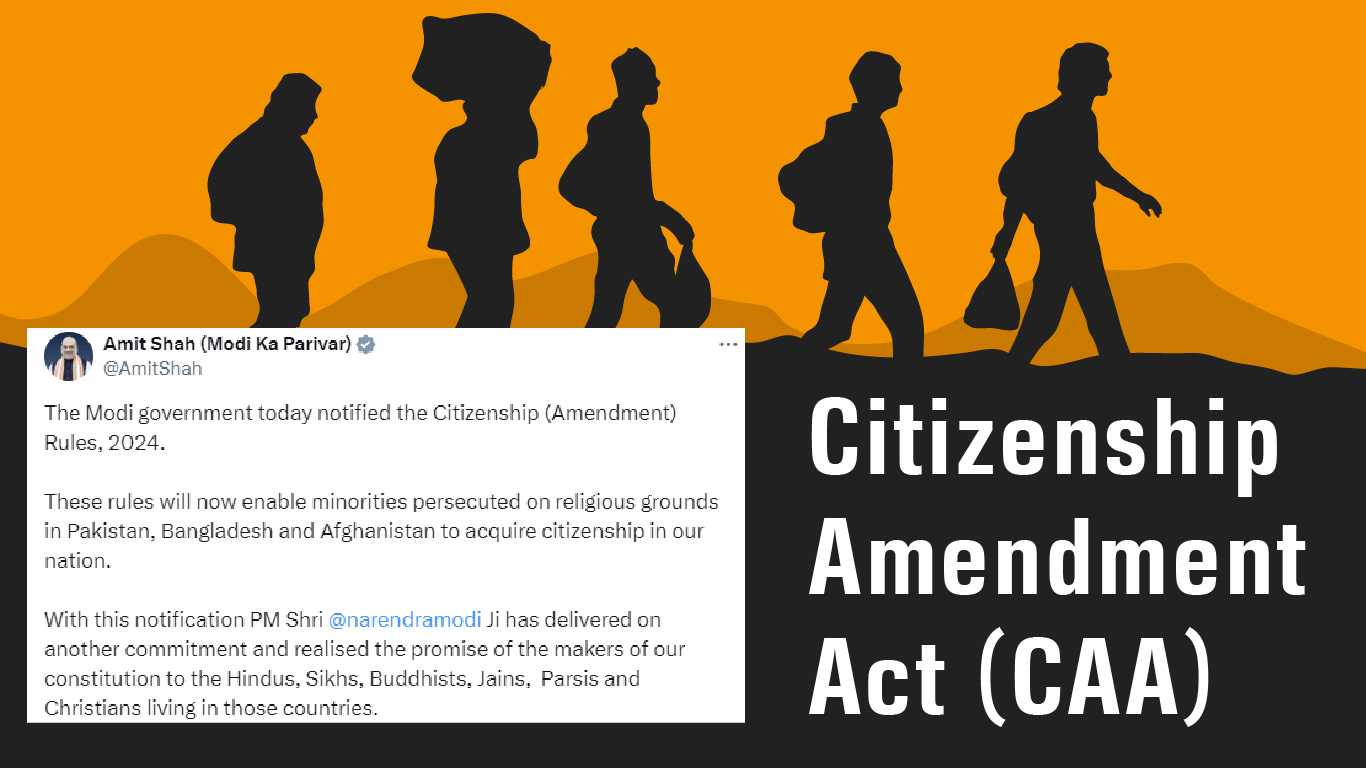Preceding the General Elections of 2024, the Central government has officially issued the regulations for the implementation of the controversial Citizenship (Amendment) Act (CAA) of 2019.
What is CAA?
In December 2019, the Citizenship Amendment Act (CAA) was introduced in India. This amendment changes the Citizenship Act of 1955 to allow refugees from Hindu, Sikh, Buddhist, Jain, Parsi, and Christian communities who left Afghanistan, Bangladesh, and Pakistan before December 31, 2014, due to religious persecution or fear of persecution to obtain Indian citizenship.
CAA Controversy:
The CAA has been a subject of significant controversy and has sparked protests across India. Critics argue that the act is discriminatory as it excludes Muslims from its purview, which they see as a violation of the secular principles enshrined in the Indian Constitution.
Additionally, there are concerns that the act, when combined with other proposed measures like the National Register of Citizens (NRC), could potentially be used to target and marginalize Muslim communities.
In this situation, the Citizenship (Amendment) Act 2019 came into effect on Monday (11/03/2024), ahead of the 2024 election. The key negative of this act is that it doesn't include Muslims and has been criticized for being discriminatory. Many political parties oppose this act and post their views against CAA Act on their social media pages.
Ministry Of Home Affairs Post On X:
Ministry of Home Affairs has posted on X, "The Modi government today notified the Citizenship (Amendment) Rules, 2024. These rules will now enable minorities persecuted on religious grounds in Pakistan, Bangladesh and Afghanistan to acquire citizenship in our nation.
With this notification PM Shri @narendramodi Ji has delivered on another commitment and realised the promise of the makers of our constitution to the Hindus, Sikhs, Buddhists, Jains, Parsis and Christians living in those countries."
